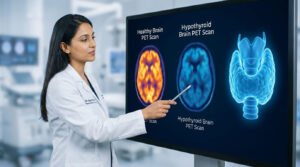Cancer- A group of disease characterized by uncontrolled division of abnormal cells, invading tissues in the vicinity through blood and lymph. All tissue types have the potential to be neoplastic and may or may not become malignant. Tissues characterized by rapid cell turnover, hormonal sensitivity and regular exposure to environmental mutagens have an increased tendency of transformal into malignant tissues. Cancer is a pathologic process which occur in stages and the staging depends on site of emergence of the disease. However, metastasis of cancerous tumor to other parts of the body only arises from site of origin. Cancer staging specifies the type of cancer, duration of occurrence and also reasons of aggressiveness towards a particular anticancer therapy provided to the patient. Not only this, staging also aids in measuring the risk of cancer progression and recurrence but also in devising out an appropriate plan for cancer rehabilitation.
Most cancers can be treated when detected in the initial stages. But, there are chances of cancer being detected even after treatment. Recurrence of cancer can occur in the same place as before or might come back somewhere else in the body. This possibility of cancer recurrence accords it to be a chronic illness requiring long-term management. And thus, rehabilitation interventions for survivors of this disease is growing exponentially.
What is cancer rehabilitation?
Cancer rehabilitation is a concept that is devised to help patients with cancer and also cancer survivors
to obtain the best physical, social, psychological and vocational functioning, breaking the bars of limitations
that are imposed on them by the disease or due to the consequences of treatment. This programme is
conceptualized to provide patients living with cancer a reasonable degree of independence and help them
regain control over many aspects of their daily lives.
Motive of cancer rehabilitation
Rehabilitation can be opted throughout the phases of cancer, beginning from diagnosis to the completion
of treatment. It is a set of sessions conducted which include both patient and family counseling along with
cancer education, nutritional and diet guidance, as well as management of pain, and other functional
activities through exercise and other therapies. The effectiveness of this however depends on the patient’s
potential to attempt, accept and react to therapies, in addition to the hope and support offered by their families.
In order to decide the approach for providing assistance to the patient, it is very important to understand connection between the patient’s physical, psychological and social aspects. Thus, to interpret the correct diagnosis and convey best results, the team of rehabilitation involves oncologists, physiatrists, physical, occupational, recreational and speech therapist, nutritionists, rehabilitation nurse, social worker, home- health aide, vocational counselor and psychologists.
Classification of cancer rehabilitation
Rehabilitation is a kind of support that assists cancer patients to readapt themselves to the society. In
an effort to meet the patient’s needs, cancer rehabilitation is categorized into four sections. These
classifications have different degrees of effectiveness on patients based on stage of disease or treatment.
The four categories are as follows
- Preventive Rehabilitation
The commencement of this procedure begins as soon as the patient is diagnosed with cancer. Its purpose is to take measures in order to prevent impairments. - Restorative Rehabilitation
The motive is recuperation of remaining functions and ability in the patient for their recovery. Also aims at achieving as much recovery possible for patients with functional impairments or decreased abilities. - Supportive Rehabilitation
Mostly focusing on self-care abilities, providing guidance on self-help devices, teaching more skillfull ways of doing things for daily living. Also assists with mobility for patients with progressive cancer suffering functional impairments and decreased abilities. - Palliative Rehabilitation
More inclined towards helping the patients to live a high quality of life in terms of physical, psychological and social well-being. It is an approach planned to help patients enduring the symptoms caused by cancer and also the after effects of treatment by relieving pain, dyspnea, edema, breathing assistance and relaxation.
Rehabilitation During Each Phase of Cancer
- Treatment (Before or after surgical treatment)
Concerns with psychological status of the patient who have just been diagnosed with cancer or/and have started with their treatment. The right way to communicate with patient is important in order to understand how the patient reacts to this information. It is also essential to keep in mind the issues which the patient and their families will be concerned about, and counsel them with correct information. -
During Chemotherapy
Chemotherapy usually decreases the physical strength and thus rehabilitation makes it a point to engage the patient in postoperative care. They encourage the patient to involve in light activities such as sitting, standing, walking as soon as possible after the chemotherapy session or operation. Regular visits to patients by rehabilitation nurses is carried out to ensure if patient is making movements like mild exercises even if for little time so as to maintain physical and muscle strength. The process of helping the patients to gain their control over their own activities majorly enhances their self confidence thus Chemotherapy playing as a boon for psychological health as well. -
During recurrence and advanced stages
Patients who are at the risk of cancer recurrence or when disease is in an advanced stage often symptoms are manitested indicative of progressive cancer. There are chances of the patient developing disuse syndrome which further deteriorates the condition causing nausea, fatigue, etc. To minimize these risks and maintain self confidence, one should indulge in self-care in daily routine such as eating, bathing, walking, etc. What happens often is that while undergoing treatment patient only concentrates on aspect of cure which becomes the future outcome. However, they tend to neglect the day by day deteriorating health thus, it becomes necessary to decide and focus on what is needed to be done in an effort to prevent future deterioration of physical health. Rehabilitation staff plays a role in enabling the patient as well as his/her family to understand the reality and help make a choice on the goals of treatment, during this transition period. -
During the terminal stage
the needs of the patient and their family becomes crucial during this phase. Role of the rehabilitation staff comes into picture to communicate between the families and the patient as communication becomes difficult for them at this stage. Assisting the families to satisfy wishes of the patient such as walking them to the bathroom or lying them down on bed by adjusting the environment around the patients like making walking aids or communication aids available.
Rehabilitation can be applied till the very end stage by helping the patients who are bedridden with palliative care such as with breathing assistance, motion exercises or massaging swollen lower limbs.
The outcome of cancer rehabilitation is that although rehabilitation cannot precede the occurrence of symptoms of the disease but it can provide a significant degree of independence to treatment in a positive way.








